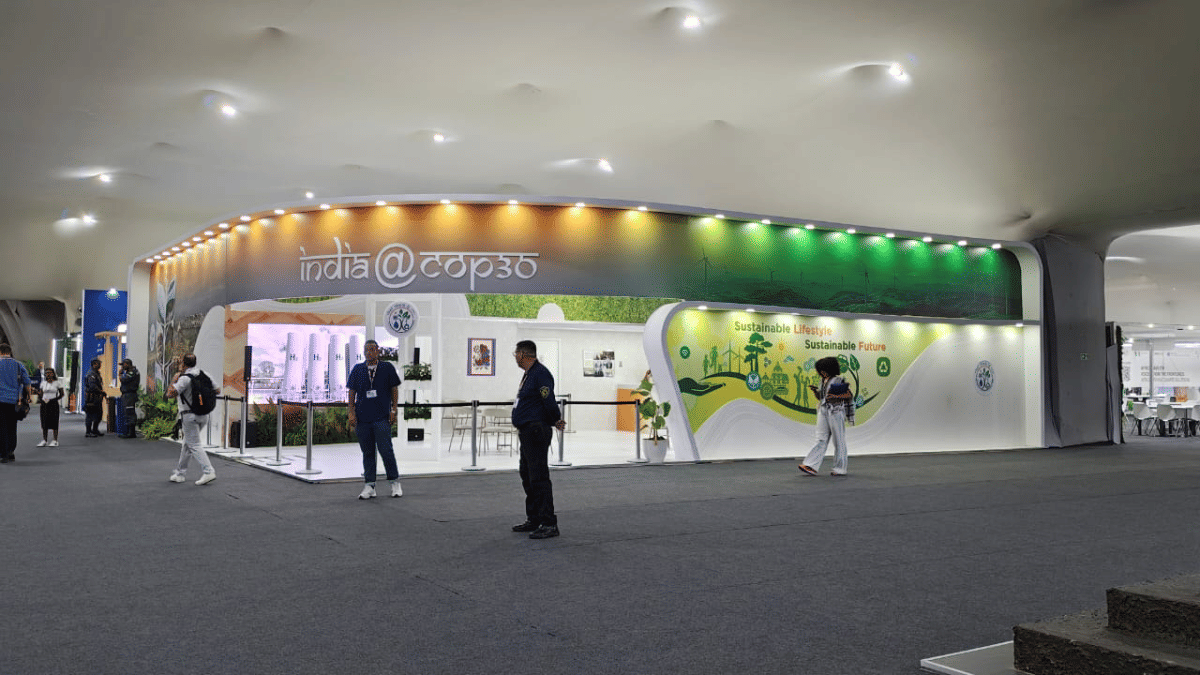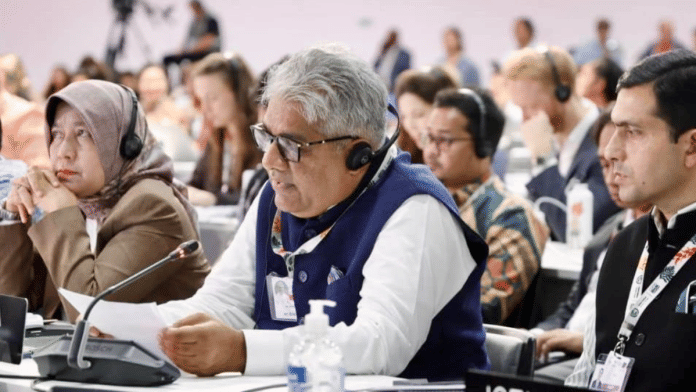Belém (Brazil): The United Nations Conference of the Parties (COP) on Saturday decided to establish a two-year work programme on climate finance, including on Article 9.1 of the 2015 Paris Agreement which mandates that “developed countries provide financial resources to developing countries” for mitigation and adaptation.
Titled ‘Global Mutirão’, the final text did not include any mention of fossil fuel, which Colombia and other nations were pushing for. More than 80 countries, and the European Union, had come out in agreement to include references in the final draft to phasing out fossil fuels.
“Colombia opposes a COP30 declaration that does not tell the world the scientific truth,” the country’s President Gustavo Petro tweeted shortly after the plenary being chaired by COP30 President André Corrêa do Lago was suspended. “I do not accept that the COP30 declaration fails to state clearly—as science does—that the cause of the climate crisis is the fossil fuels used by capital. If that is not stated, everything else is hypocrisy,” he added.
Shortly before Colombia and Uruguay raised their objections, Lago had mentioned countries being disappointed by the outcome.
“We know some of you had great ambitions. I know youth and civil society will demand us to do more…I, as president of COP30, will therefore create two roadmaps—one on halting and reversing deforestation, another for transitioning away from fossil fuels in a just, orderly and equitable manner,” Lago said.
This mention had little relevance for the text as the Global Mutirão was already finalised. Countries such as Panama, Colombia, Uruguay, and Sierra Leone didn’t consider this post-text reference enough, with Colombia objecting to the outcome of the Mitigation Work Programme (MWP) and the Global Goal on Adaptation (GGA).
As COP30 draws to a close in Belem, Brazil, India welcomes the key outcomes.
A substantive decision on adaptation is a manifestation of the principle of equity and a recognition of the overwhelming need for adaptation in developing countries.
We appreciate the Presidency’s…
— Bhupender Yadav (@byadavbjp) November 23, 2025
The 30th edition of COP, which concluded in Brazil’s Belem, was billed as the “implementation COP”.
During the plenary, the discussion focused on developing a roadmap to transition away from fossil fuels and end deforestation, committing to triple adaptation finance by 2035, an implementation accelerator to keep the 1.5°C target alive, and a new mechanism to enhance international cooperation on just transition.
The Global Mutirão said the COP emphasises “the importance of conserving, protecting and restoring nature and ecosystems towards achieving the Paris Agreement temperature goal, including through enhanced efforts towards halting and reversing deforestation and forest degradation by 2030”.
The document resolves to decisively transition to a “focus on the implementation” of the Paris Agreement and decisions adopted since its first session. It commended the 122 parties that have communicated their new nationally determined contributions (NDCs) and urges countries that have not yet—India being one of them—to do so “as soon as possible”.

Union Environment Minister Bhupendra Yadav had told reporters at the COP30 venue that India hadn’t missed any deadline in submitting its NDC, adding that the country would release the updated document by the end of December.
Late Saturday, India released a statement in Belem on behalf of the BASIC group of countries (Brazil, India, South Africa, and China) appreciating the COP Presidency “for ensuring that all parties are consulted, and that a delicate balance is achieved on issues on which some parties held extreme positions”.
“We stand firmly with the COP president, Brazil’s Mutirao spirit, and the complete package, delicately crafted. All the documents are being adopted as a package today, and we look forward to working closely to ensure that today’s outcome takes us in the right direction for climate action,” the statement read.
India also expressed concerns on the point of orders on behalf of the like-minded developing countries (LMDCs).
“The LMDCs share the concern regarding the pattern we are witnessing—certain parties repeatedly taking turns to object and delay the plenary in an effort to secure outcomes that reflect their individual preferences rather than respecting the party-driven, consensus-based nature of this process. This behaviour risks undermining the multilateral spirit that must guide our work,” it said.
India further said the issues raised have already been gavelled—the COP presidency’s stamp of approval on decisions agreed upon in the final summit text—and any attempt to reopen it would set “a dangerous precedent”.
“We cannot reopen a gavelled decision. Doing so would set a dangerous and damaging precedent for this process. In previous COPs, even when our own countries had concerns about gavelled items, they were not reopened. It would be fundamentally unfair, and procedurally inconsistent, to make an exception now,” it said.
Experts said that the discussions and the outcome of COP30 were balanced.
“The Belém COP has revealed the emergence of a new multilateralism in a world no longer shaped by unipolar politics. A decade after the Paris Agreement, this COP has concluded with a fundamentally different lens on implementing climate action—one that is more national and practical,” Aarti Khosla, director, Climate Trends, said.
She added that for the first time, trade and climate have been acknowledged as interconnected levers of global transformation, signalling that climate action is now inseparable from how economies organise and compete.
(Edited by Ajeet Tiwari)
Also Read: Climate adaptation, finance & actions—the post-COP30 battles in which India’s voice can matter






